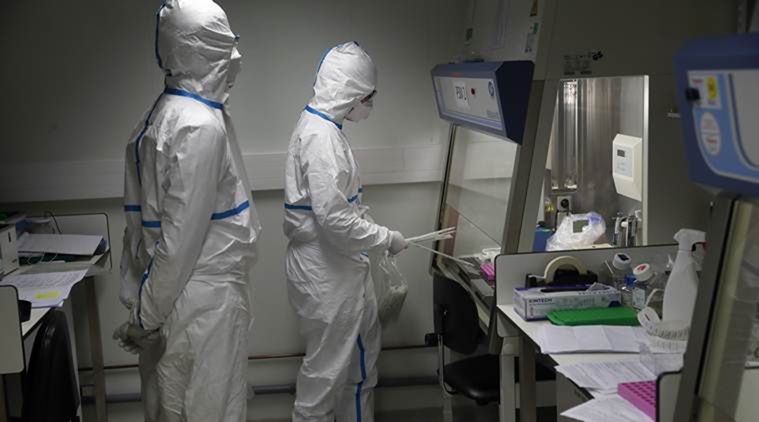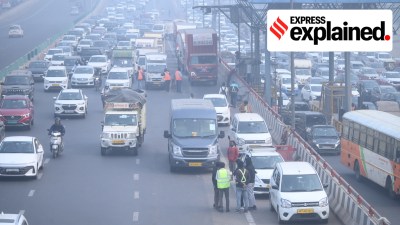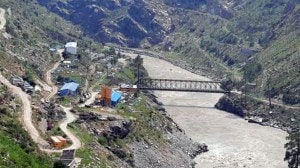Lack of crucial components, delay in overseas regulatory nods hinder progress on testing kits
Administrative requirements in other nations and the severity of the outbreak in India compared with others have caused uncertainty over whether the country may be able to get sufficient kits soon.
 Among the companies with approved test kits, only a handful such as Vanguard Diagnostics’ rapid card test have reportedly been developed within the country, but the company did not reveal its total manufacturing capacity. (Representational Image)
Among the companies with approved test kits, only a handful such as Vanguard Diagnostics’ rapid card test have reportedly been developed within the country, but the company did not reveal its total manufacturing capacity. (Representational Image)
India may have the capacity to mass manufacture rapid antibody diagnostic kits to test for COVID-19, but a shortage of crucial elements such as the synthetic copies of the virus and its antibodies leave it dependent on other countries to assemble these test kits in a bid to scale up testing.
Here, too, a flurry of clearances given to around 30 companies — including Mylan Pharma, Cadila Healthcare, SD Biosensor and Trivitron Healthcare — for nearly 40 rapid antibody test kits over the span of a month, almost entirely imported, haven’t sped up India’s testing process. Administrative requirements in other nations and the severity of the outbreak in India compared with others have caused uncertainty over whether the country may be able to get sufficient kits soon.
Among the companies with approved test kits, only a handful such as Vanguard Diagnostics’ rapid card test have reportedly been developed within the country, but the company did not reveal its total manufacturing capacity. “We are in the process of getting ready for the rapid kits and would not like to make a comment at the moment,” said Veena Kohli, MD, Vanguard Diagnostics.
Rapid diagnostic antibody tests — done either through rapid card tests, chemiluminescent immunoassays IgG and IgM (CLIA) and enzyme-linked immunosorbent assays (ELISA) — only tell whether a person tested has antibodies against COVID-19. This means they cannot confirm whether the person currently has the virus the way RT-PCR tests can. Yet, these kits cut down testing time by many hours, allow for several samples to be tested in a go and have been considered a beneficial tool to ramp up testing here.
For instance, a CLIA test will allow for around 100 samples to be tested together in the span of an hour, allowing for one machine to churn out 1,500 results in a day, said V Gopinathan, vice president—Marketing & Planning, CPC Diagnostics. The company is currently waiting on 1.4 lakh CLIA test kits from a manufacturer in China, but its consignment is stuck due to the Chinese regulator’s recent decision mandating exporters to receive its approval before shipping these products.
Dr GSK Velu, MD, Trivitron Healthcare, said that cartridges for rapid antibody card tests can be easily manufactured in India. However, it is difficult for companies to meet local demand at this stage due to a lack of the COVID-19 protein — a man-made copy of the virus (antigen) that helps determine whether the person has developed antibodies.
“Indian companies are looking at producing this (rapid tests), but we are a few weeks behind, because the COVID-19 proteins (used in these tests) are not available in India. Some companies are trying to create this protein, but that is also taking some time,” he told The Indian Express. The company is trying to source the protein from countries like China and Canada so as to tweak its rapid card tests for HIV and use it to test for COVID-19 here.
“This is a very new disease. Nobody has gone into the production of its antigens yet. Some people are trying to do it for vaccines … we are trying to talk to a few companies in India who are trying to get into vaccines for COVID-19 also, but nothing has been finalised yet,” he added.
Similar issues arise where CLIA and ELISA tests are concerned, say experts.
“Several companies are working on these rapid tests, but it will take around 1-2 months for these to come out, because it will take time to develop the reagents, viral protein and even additional antibodies required to trace whether the patient’s sample has developed COVID-19 antibodies,” said a scientist, requesting anonymity.
According to experts, developing these antibodies itself is a long process that would take around 2-3 months despite the government’s shortened approval timelines. “China and other countries are ready with these antibodies because the outbreak started there months ago and they have had all this time to synthesise them,” they said.
No company in India manufactures the machines to perform CLIA tests, according to Gopinathan. “The automated analyser (machine that analyses the samples) are manufactured by 8-9 manufacturers around the world in countries like Japan, USA, European countries and China,” he said, adding, “It is a closed system. There is a technology limitation, because very few companies have the R&D strength required to replicate the equipment.”
- 01
- 02
- 03
- 04
- 05































